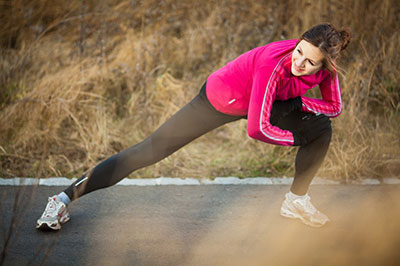Recent Posts
How nutrients impact physical performance

Many physiological and nutritional demands occur within the body during exercise. As muscles contract, the demand for oxygen, hydrogen and other key nutrients increases. The human body requires a continuous supply of energy to perform its many functions. As energy demands increase with exercise, additional energy must be supplied or the exercise will end.
Factors of performance
Whether a recreational athlete or an elite athlete, many factors influence performance including, but not limited to, diet, hydration, fitness level, intensity and duration. There are many factors that predict what source of fuel will be used. Proteins, fats and carbohydrates are all possible sources of fuel for exercise and muscle contraction.
During moderate-intensity exercise, roughly half of the energy is derived from glycogen, while the other half comes from glucose in the blood and fatty acids. Carbohydrates (glucose/glycogen) serve as the primary source of fuel as duration and intensity increase. If exercise continues for a significant period of time, fatty acids will serve as the fuel source when glycogen stores are nearly depleted. It must be noted that fat metabolism cannot occur without the presence of glucose, and thus muscle glycogen and blood glucose are the limiting factors in performance. Protein or, more specifically, amino acids, will only be used as an energy source if other calories are insufficient.
Food choices
A person’s diet will influence which source of fuel is used and therefore, performance level. If a person consumes a high-carbohydrate diet, more glycogen will be used for fuel. If the diet is high in fat, fat will be used as the fuel source. A high-fat diet is not recommended as even the leanest person has plenty of stored fat for long endurance exercise. A high-fat, low-carbohydrate diet can lead to poor performance due to low glycogen stores. As a guideline for endurance athletes, roughly 60–70 percent of calories should come from carbohydrates, 10–15 percent protein and 20–30 percent from fat. You should consume a well-balanced diet containing carbohydrates, protein and fat during training periods.
Carbohydrate intake before, during and after exercise is crucial. A high-carbohydrate pre-exercise meal not only prevents hunger pangs during exercise, it also provides optimal blood glucose levels for endurance exercising and increases glycogen stores. Avoid high-fat foods in a pre-exercise meal as it delays stomach emptying and takes longer to digest. This meal should be three to four hours before an event.
Marathon runners talk about “hitting a brick wall.” This refers to the time when fuel sources have been drained and not replaced. When glycogen and blood glucose levels are low, the body is out of fuel and cannot keep going no matter how fast an athlete wants to go.
For exercise lasting longer than an hour, you should ingest carbohydrates to fuel the brain and muscles. You can maintain a sufficient supply of energy by consuming 26–30 grams of carbohydrates every 30 minutes during exercise. Most sports drinks provide 15–20 grams of carbohydrate, so consuming 8–12 ounces every 15–30 minutes is recommended. As for protein, only a few amino acids can actually be used directly as energy. Thus, protein consumption during exercise is not advantageous.
Fluid intake
Muscle glycogen stores must be replaced after endurance exercise. Resynthesis of muscle glycogen is promoted when carbohydrates are consumed immediately after exercise. Unfortunately, due to an elevated body temperature, appetite is usually depressed and many athletes have difficulty consuming foods immediately after exercise. Drinking carbohydrates via a sports drink or shake provides carbohydrates and promotes rehydration.
Adequate fluid intake is also crucial for any athlete. You should weigh yourself before and after an endurance event, especially during hot weather. For each pound lost during exercise, drink three cups of fluid. Fluids should not be restricted before, during or after an event. Athletes should not rely on thirst as a sign of fluid loss. Consume roughly 14–22 ounces of fluid before an event, 6–12 ounces every 15–30 minutes during an event, and after the event, 16–24 ounces for every pound of body weight lost.
Anne Harguth is a registered dietitian with Mayo Clinic Health System in Waseca.




